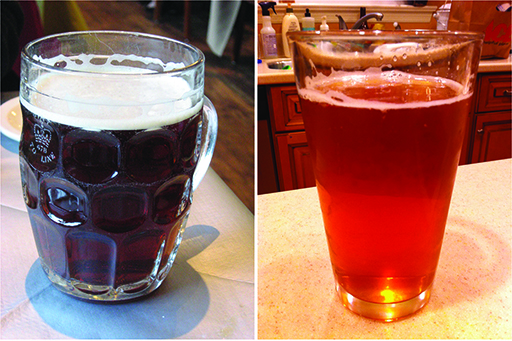1 Are you getting what you are paying for?
The alcohol industry is, like many others, very highly regulated. After all, if you are purchasing a pint of premium beer you want to be confident that what you are served is consistent with what you think you have paid for.
Look at Figure 1 below which illustrates two pints of beer. One of these is a budget supermarket brand, the other a premium craft beer.
If you ordered a pint of premium beer, would you necessarily be able to tell whether you had received what you had ordered? How could you be sure that the vendor had not served you a budget-label value beer but charged you a premium price?
In Week 3 you looked at taste and smell and how these are linked to alcohol. So if you are a beer connoisseur it is very possible that you may be able to tell that you had been served a different beer simply by its taste, by how it smells or even by its appearance.
But if you are not an expert, then don’t worry. It is very unlikely that you will be served a different, lower-quality beer to the one you were expecting. The brewing industry is regulated and has seen a large increase in legislative pressure in the twenty-first century. The sale of alcohol in licensed premises in England and Wales is subject to the requirements of weights and measures, fair trading, licensing and underage sales legislation as enforced by Trading Standards.
There are legal requirements for licensed premises concerning the quantities and measurement of alcoholic drinks and how they are described, as well as on informing customers about the prices they will be charged. There are also mandatory licensing conditions, which include minimum quantities and irresponsible pricing promotions.

